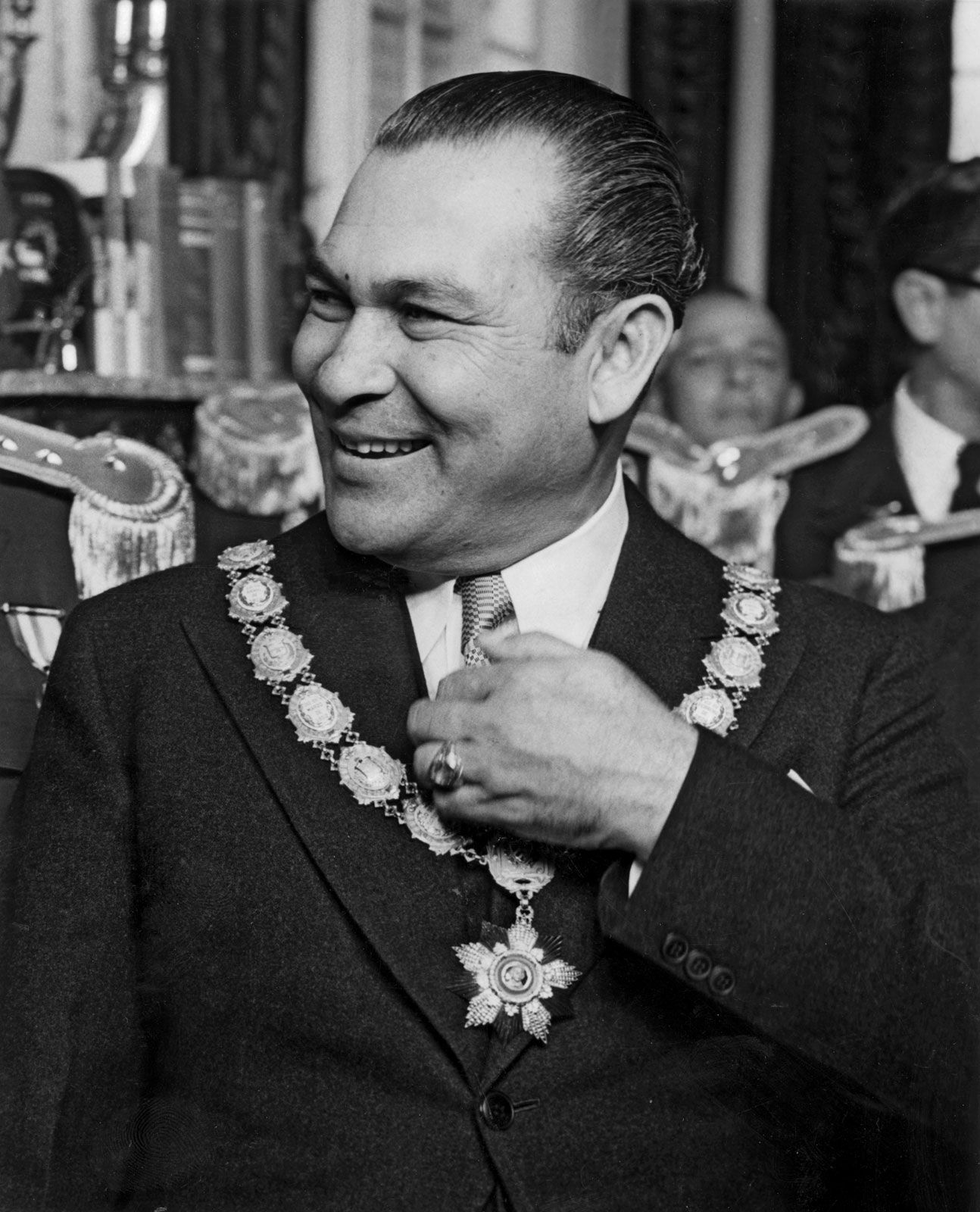More languages
More actions
Tag: Visual edit |
mNo edit summary Tag: Visual edit |
||
| Line 24: | Line 24: | ||
[[Category:Fascists]] | [[Category:Fascists]] | ||
[[Category:Genocide perpetrators]] | [[Category:Genocide perpetrators]] | ||
{{DEFAULTSORT:Batista, Fulgencio}} | |||
Latest revision as of 17:47, 12 December 2024
Fulgencio Batista y Zaldívar | |
|---|---|
 | |
| Born | 16 January 1901 Banes, Cuba |
| Died | 6 August 1973 (aged 72) Málaga, Spain |
| Cause of death | Heart attack |
| Nationality | Cuban |
| Political orientation | Fascism Anti-communism |
| Political party | Democratic Socialist Coalition (1939–44) Liberal Party of Cuba (1948–49) Unitary Action Party (1949–52) Progressive Action Party (1952–59) |
Fulgencio Batista y Zaldívar (born Rubén Zaldívar; 16 January 1901 — 6 August 1973) was a far-right Cuban politician, who served as the democratically-elected leader of Cuba from 1940 until 1944, and then as a Statesian-backed military dictator from 1952 until 1959, when he was overthrown by the 26th of July Movement during the Cuban Revolution.
Following his military coup d'etat, he suspended the 1940 Constitution, the right to strike, and persecuted the labor movement and socialists. He aligned himself with wealthy landowners and the mafia, and presided over a stagnating economy, while the gap between rich and poor Cubans widened. Over 20,000 Cubans were murdered during his reign. His dictatorship eventually came to an end on January 1, 1959, after the Battle of Santa Clara, and fled to the Dominican Republic. Batista died in Spain in 1973.
Leadership[edit | edit source]
During the Batista regime, much of Cuba was forced into destitution. 24% of the country was unable to read, 85% of the country had no running water and 90% lacked electricity in their homes. Only 22% of the country was able to have access to doctors.[1]
References[edit | edit source]
- ↑ Raúl Castro Ruz (2021-01-04). "The moment I learned of the Batista regime’s fall" Granma. Retrieved 2023-07-15.
